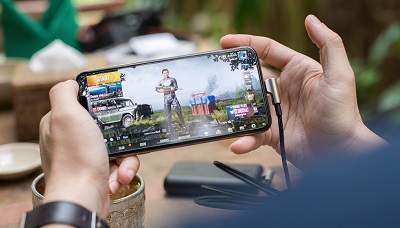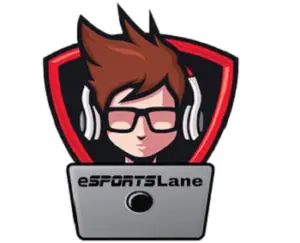The World Cyber Games is the Olympics of eSports and gaming and is an annual competition which sees players from numerous countries take part in different gaming titles. All the information around the World Cyber Games including its history, games played, host cities, participant countries, format and everything else can be found in this exhaustive WCG guide below.
Table of Contents
World Cyber Games History – Where Did the WCG Originate?
The CEO of International Cyber Marketing, Yooseop Oh was responsible for kick-starting the World Cyber Games and he was financially helped by Samsung in conjunction with the Ministry of Information and Communications and the Ministry of Culture and Tourism in South Korea.
Over the years, these games have grown to unprecedented levels in terms of participation and prize money before they were halted after the 2013 edition for a period of five years.
Each of the games saw its own set of gaming titles played out and players competing for three medals like has been the case in traditional Olympics and other such multi-discipline games.
While the first ever World Cyber Games were held in 2001, the first time this idea was tried out was in 2000 as an attempt to gauge the interest levels. Named the WCG Challenge in 2000, the competition was hosted by Everland in Yongin, South Korea and a total of 180 athletes qualified for the final event.
Representing 17 countries, these players featured in four different games, Age of Empires II, FIFA 2000, StarCraft Brood War and Quake III Arena. Hosts South Korea finished the medals tally at the top of the standings with three golds and three silvers, while USA won a gold and a bronze. The remaining medals, one silver and one bronze were won by Sweden and Netherlands respectively.
More importantly this gave rise to the first ever World Cyber Games in 2001. Here’s more on the different editions of the World Cyber Games over the years.
2001
The first ever edition of the World Cyber Games was hosted in Seoul, Korea in 2001 over a five-day period starting December 5. A total of $300,000 USD were awarded to the winners with around 400 players making it to the finals from the qualifiers which were held in the March-September period that year.
Athletes from 24 countries featured in the 2001 World Cyber Games, more than 30,000 spectators watched the games live from the arena, and hosts South Korea finished at the top of the medals tally yet again with three golds, a silver and three bronze medals.
China, with two golds, and Germany with one gold were the next on the standings.
Games
Age of Empires, Half-Life: Counter-Strike, FIFA 2001, Starcraft: Brood War, Unreal Tournament, Quake III Arena.
All the games were played on PC.
Also Read:
- How Much do eSports Streamers Earn? An Ultimate Guide!
- What is the Average Length of an eSports Gamer’s Career?
2002
There was a change in the venue for the 2002 games with the event hosted at Daejeon in South Korea. The competition saw a prize money of $300,000 again and out of a total of 1.5 million athletes who tried to make it to the final games, 456 players finally qualified.
This time around, 45 countries were represented in the WCG which was held between October 28 and November 3 and South Korea topped the medals’ list yet again. They won two golds and two silvers as compared to the second-placed Russia who won two golds.
Sweden, with one gold and two bronze medals and two bronzes, was placed third.
Games
Age of Empires II, Half-Life: Counter-Strike, 2002 FIFA World Cup, Starcraft: Brood War, Unreal Tournament, Quake III Arena.
All the games were played on PC.

2003
The World Cyber Games of 2003 were back in Seoul and this time around the competition was expanded to seven days with more than 550 players from 55 countries participating in the finals. The prize money was worth $350,000, it saw a new console-based game, Halo: Combat Evolved, feature in these games.
Germany’s three golds and two silvers saw them take the pole position and they were followed by Chinese Taipei and South Korea, both of whom won a couple of golds and a silver.
Games
Age of Mythology, Half-Life: Counter-Strike, FIFA 2003, Starcraft: Brood War, Unreal Tournament, Warcraft III, Reign of Chaos, Halo: Combat Evolved.
All the games except Halo: Combat Evolved, were PC-based. Halo: Combat Evolved was console-based.
2004
This was the first edition of the games which was held outside of South Korea with San Francisco in California, United States hosting the games. The prize money was increased to $420,000, and a total of 642 players made it to the final competition.
This was also the first edition in which eight games were played including the Need for Speed and Project Gotham Racing.
Netherlands won three golds and a bronze to top the table while South Korea (two golds, three silvers and a bronze) and USA (2G, 1B) came second and third.
Games
Counter-Strike: Condition Zero, FIFA 2004, StarCraft: Brood War, Unreal Tournament, Warcraft III: The Frozen Throne, Need for Speed: Underground, Halo: Combat Evolved and Project Gotham Racing 2.
All games but the last two of these were PC-based while Halo: Combat Evolved, Project Gotham Racing 2 were console-based.
2005
In 2005, the World Cyber Games were held at the Suntec City in Singapore. Microsoft joined hands with WCG as the major sponsor and provided technology support for the games between 2005 and 2008. The games were solely played on Microsoft’s Windows PC or the Xbox console.
679 athletes took part in the games, with 67 countries getting represented. Stunningly, these games created a record for the youngest ever participant when three-year-old Amin Gonnam of Iran took part as well.
USA continued their good run with two golds and a silver to their kitty while South Korea won two golds and a bronze. Brazile came third with a gold and two silvers to their name.
Games
Counter-Strike: Condition Zero, FIFA 2005, StarCraft: Brood War, Warcraft III: The Frozen Throne, Need for Speed: Underground 2, Warhammer 40,000: Dawn of War, Dead of Alive Ultimate, Halo 2.
All but the final two of the aforementioned games were PC-based. Dead of Alive Ultimate and Halo 2 were console-based games.
2006
In what was the first instance of the World Cyber Games getting hosted in Europe, Monza in Italy was the venue for the 2006 edition of these games. 700 players from 70 countries participated this year in the finals and shared a prize money of $462,000.
Gotham Racing, which had been a part of the previous editions but dropped for 2005, made a comeback since the venue was the Monzo Autodromo, where F1 races are held. It replaced Halo 2 in the final list of eight games played this year.
South Korea, Russia and Germany won the top three places in the medals standings.
Games
Counter-Strike 1.6, FIFA 2006, StarCraft: Brood War, Warcraft III: The Frozen Throne, Need for Speed: Most Wanted, Warhammer 40,000: Dawn of War, Dead of Alive 4, Project Gotham Racing 3.
All but the last two games were played on PC while the Dead of Alive 4 and Project Gotham Racing 4 were console-based games.
2007
Seattle in USA was chosen as the venue for the 2007 edition of the WCG which were held between October 3 and 7 at the Quest Field. More than 700 players participated in the finals with 75 countries getting represented at these games, and this edition saw a whopping 12 game titles getting played.
Command & Conquer 3: Tiberium Wars, Gears of War and Tony Hawks Project 8 were the new game titles introduced to these games. USA finished atop of the medals tally with three golds, two silvers and a bronze while South Korea, with 2 golds and a bronze were second. Brazil also won two golds and a bronze medal.
Games
Counter-Strike 1.6, FIFA 2007, StarCraft: Brood War, Warcraft III: The Frozen Throne, Age of Empire III: War Chief, Need for Speed: Carbon, Carom3D, Dead of Alive 4, Project Gotham Racing 3, Command & Conquer 3: Tiberium Wars, Gears of War and Tony Hawks Project 8
The first eight games were PC-based while the remaining four were played on console.
2008
More than 800 players from 78 countries participated in the 2008 World Cyber Games which saw 14 gaming titles for the first time. These games were held in Koln (or Cologne) in Germany.
This was also the first edition of the WCG where a mobile game was included to the list, the racing game by the name of Asphalt.
South Korea won three golds, three silvers and a bronze and were followed by Netherlands and USA who won two and one gold medals respectively.
Games
Counter-Strike 1.6, FIFA 08, StarCraft: Brood War, Warcraft III: The Frozen Throne, Age of Empire III: The Asian Dynasties, Need for Speed: Carbon, Command & Conquer 3: Kane’s Wrath, Carom3D, Red Stone, Halo 3, Guitar Hero 3, Project Gotham Racing 4, Virtua Fighter 5, Asphalt 4.
Of these, the first eight were PC-based, the next five are console-based while Asphalt 4 was a mobile-based game.
2009
The games were held in China for the first time with Chengdu hosting the 2009 edition, as more than 600 athletes made it to the finals this time, representing 70 countries from around the world.
This time around, the number of games were reduced to 11, with two new games Track Mania and Wise Star making it to the list. South Korea won a whopping 8 medals including three golds, while Sweden and Germany ended with a gold apiece.
China came away with one gold and one silver.
A promotional game, Dungeon Fighter was also played and South Korea won the gold and bronze in this one.
Games
Counter-Strike 1.6, FIFA 09, StarCraft: Brood War, Warcraft III: The Frozen Throne, Carom3D, Trackmania Nations Forever, Red Stone, Guitar Hero World Tour, Virtua Fighter 5, Asphalt 4 Elite Racing, Wise Star 2
The first six games were played on PC, the next three on Console and the last two on mobiles.
Also Read:
- All the eSports Job Profiles Other Than Gaming
- Tips for Potential eSports Journalists Which Actually Help
2010
Los Angeles hosted the 2010 at the Los Angeles Convention Center, with 450 players from 60 countries taking part in the competition.
10 official events made the final cut this time, one lesser than the previous games, and two new games in the form of Tekken 6 and Forza Motorsport were also included this time.
South Korea won the event yet again with three golds, two silvers and three bronze medals while Brazil, Great Britain and Germany ended second with a gold and silver to their name.
Games
Counter-Strike 1.6, FIFA 10, StarCraft: Brood War, Warcraft III: The Frozen Throne, Carom3D, Trackmania Nations Forever, Tekken 6, Guitar Hero 5, Forza Motorsport 3, Asphalt 5.
Tekken 6, Guitar Hero 5 and Forza Motorsport 3 were all console-based, Asphalt 5 was a mobile game and the rest were all PC-based.
2011
BEXCO in Busan, South Korea played host to the 2011 WCG games and 600 players from across 60 countries made the final cut. The final prize money was $303,000.
10 games were played this time including the famous League of Legends which made its debut. South Korea topped the medals tally yet again with four golds, two silvers and a bronze medal, while China and Poland came second and third on that table.
Games
Counter-Strike 1.6, FIFA 11, StarCraft II: Wings of Liberty, Warcraft III: The Frozen Throne, League of Legends, Crossfire, World of Warcraft: Cataclysm, Special Force, Tekken 6, Asphalt 6: Adrenalin
All but the last two were PC-based, with Tekken 6 on Console and Asphalt 6 on mobile.
Carom3D, Dungeon Fighter and Lost Saga were played as promotional games.
2012
Kunshan in China hosted the 2012 WCG and this time around 40 countries sent in about 500 athletes for a prize money of $250,000. This edition of the World Cyber Games also saw the debut of Dota 2 which was one of only five games which were played.
China topped the medals tally with three golds, two silvers and two bronze medals, while Germany and South Korea both won a gold.
Games
CrossFire, FIFA 12, StarCraft II: Wings of Liberty, Warcraft III: The Frozen Throne, Dota 2.
All the games were PC-based.
Some others like Counter-Strike Online, Defense of the Ancients, World of Tanks and QQ Speed were all played as promotional games.
2013
Kunshan in China was the host for the 2013 edition of the games and this time around only 38 countries participated with their 500 athletes. A prize money of $300,000 was on offer with seven games in action.
Two new games, World of Tanks and Super Street Fighter were also introduced, and South Korea returned back to their spot at the top of the medals tally with two golds, two silvers and two bronze medals. China had 2 golds, 1 silver and 2 bronzes while Iran got themself a gold medal too.
Games
CrossFire, FIFA 14, StarCraft II: Wings of Liberty, Warcraft III: The Frozen Throne, League of Legends, World of Tanks, Super Street Fighter IV: Arcade Edition.
All but the last game were PC based. Super Street Fighter is a console-based game.
Assault Fire and QQ Speed were held as promotional games.
2019
When the WCG returned in 2019, Xi’an in China hosted the games to 196 athletes from 25 countries. A prize money of $580,000 was on offer and six games were on display.
These were the first games which saw the removal of FIFA from the list, with Clash Royale, Hearthstone and Honor of Kings joining the fray. China won four golds to top the table, followed by USA and Hungary, both of whom won a gold apiece.
Games
Clash Royale, CrossFire, Dota 2, Hearthstone, Honor of Kings, Warcraft III: The Frozen Throne
Clash Royale and Honor of Kings were both mobile-based games while the rest were PC-based.
StarCraft II: Legacy of the Void was played as a promotional game.
World Cyber Games Prize Money
When the WCG 2000 Challenge began in 2000, the prize money for the competition was USD 200,000 and with time, this rose slowly and steadily.
In 2001, which was the first edition of the World Cyber Games, the prize money had increased to USD 300,000, which is what the prize money was in 2002 as well. This changed to USD 350,000 for 2003 and a whopping USD 420,000 in the 2004 games.
The 2005 WCG, which was held in Singapore awarded the athletes a total of USD 435,000 before the prize money increased to USD 462,000 in 2006.
In 2007, this reduced slightly to USD 435,000 before reaching USD 470,000 in 2008 and peaking at USD 500,000 in 2009.
However, in 2010, there was a drastic cut in spend and reduction to USD 250,000 and while it increased to USD 303,000 in 2011, the prize money still remained a fair bit away from its peak. In its final two editions before the competition went on a hiatus, the prize money was USD 250,000 and 300,000 respectively in 2012 and 2013.
When the games returned in 2019, the prize money had jumped up to USD 580,000.
World Cyber Games Hall of Fame
Over the years, some of the top performers at the World Cyber Games have been added to the WCG Hall of Fame.
The first two eSports athletes who made it to the Hall of Fame were Christian Höck and Yo-Hwan Lim, in 2002, and this was followed by Germany’s Dennis Schellhase (2003) and Laurens Pluymaekers and Matthew Leto (2004).
Here’s a complete list of all the Hall of Famers at the World Cyber Games:
- 2002: Christian Höck, Yo-Hwan Lim
- 2003: Dennis Schellhase
- 2004: Laurens Pluymaekers, Matthew Leto
- 2005: Team 3D (USA)
- 2006: Li Xiaofeng, Kyung-Hyun Ryoo, Daniel Schellhase
- 2007: Byeong-Geon Kang
- 2008: Manuel Schenkhuizen, Wouter van Someren
- 2009: Again (Poland), Comeonbaby (South Korea)
- 2010: NA
- 2011: NA
- 2012: Kai Wollin, Feng Yongqiang
- 2013: Lang Shuai, Xu Hongyu
- 2019: Xuwen Wang, Ma Zhe, Dai Yueqiang
Why was World Cyber Games Stopped?
In 2014, the World Cyber Games were halted by the organizers, with all tournaments associated with the WCG including its qualifiers getting canned. While there were reports the brand WCG could be used at the national level, clarity on the same was missing and contradictory reports were released as a result.
The exact reasons for this haven’t really been known for sure but loss of revenues from advertising contracts looks to have been a biggie. This could be seen in the manner in which the prize money had dwindled from its peak in 2009.
As a result of that, some of the more famous games had had to be dropped from the list of those played during the WCG over the final couple of years before it was stopped.

According to TechinAsia.com, there were rumours that two of the reasons for the cancellation was the competition from other such single and multi-event tournaments and the lack of push towards mobile gaming. However, WCG organizer and Neo TV CEO Lin Yuxin refuted this, instead blaming the change in Samsung’s strategy – and Samsung, if you remember from above, were the primary sponsors of the WCG.
There were a couple of other reasons mentioned by Lin. One, it was getting difficult for WCG to organize the smaller events in countries where eSports wasn’t that big and secondly, the games hadn’t done enough to find other ways to monetize the competitions when things were going well which meant Samsung’s decision to part ways turned out to be a body blow.
What was the WCG Ultimate Gamer?
Hannah Simone and Joel Gourdin hosted what was a reality TV show by the name of the WCG Ultimate Gamer which broadcast on American pay channel Syfy between 2009 and 2010. This program was sponsored by Samsung, who were also the sponsors of the WCG and the WCG themselves.
Two seasons of eight episodes were aired with participants expected to complete real-life challenges and isolation challenges. The real-life challenges were based on the games but to be done in real life while isolation challenge needed the gamers to get the highest score in the game for that episode and the scores were totalled from both.
The player finishing at the bottom of an episode would go into an Elimination Round and face another player nominated by the player who has come first in that episode.
At the end of the two seasons, the winners were Mark Smith and Katherine Gunn respectively.
Why is the WCG Called an eSports Olympics?
There are many similarities between the World Cyber Games and the Olympics including the manner in which participants from most of the countries take part, the medals awarded in each of the disciplines (or games in WCG) and the opening ceremony of the games.
Some other similarities include how the WCG is hosted in different cities around the world each year, the use of a mascot and the featuring of various games or titles every year.
And while the World Cyber Games were suspended for a period of five years because of the aforementioned reasons, they returned back in 2019. In turn, that makes them the perfect template to make that push towards featuring at the Olympics itself, especially if Paris can go ahead with their idea of featuring eSports as a demonstration sport at the 2024 Olympics.


